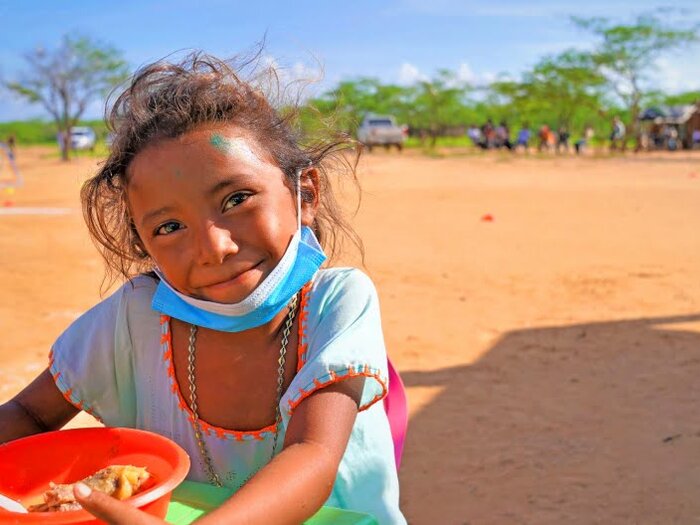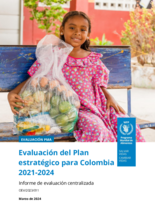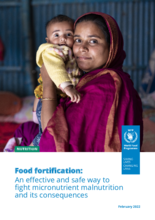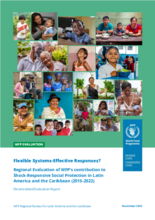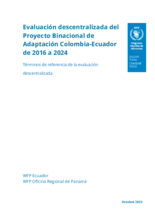Colombia
- 6 decades of conflict
- have left a heavy legacy
- 8.4 million
- people have been displaced by conflict
- 48.2 million
- population
In 2016, a peace agreement between the Government of Colombia and the country’s main armed opposition group, the Fuerzas Armadas Revolucionarias de Colombia (FARC, Revolutionary Armed Forces of Colombia) put an end to almost six decades of conflict. While other armed groups still operate in the country, this agreement opened up new possibilities for the World Food Programme (WFP) to tackle – in partnership with the Government, international cooperation agencies and other actors including the private sector – the outstanding challenges of inequality and malnutrition and to build the resilience of community’s long cut-off by armed activities.
What the World Food Programme is doing in Colombia
-
Capacity strengthening
-
WFP provides local public and private institutions with technical support for the development of policies and the design, delivery and evaluation of programmes to address malnutrition and food insecurity, with a special focus on former conflict areas. It also encourages South-South cooperation to strengthen capacities in disaster risk reduction and the implementation of social programmes.
-
Food security
-
WFP works with victims of violence – including internally displaced people and returnees – and vulnerable populations to ensure they have adequate access to nutritious, varied food at all times. Children at risk of recruitment – especially in remote rural boarding schools – or affected by displacement are supported through a school meals programme designed to build local ownership and linked to local production, in particular from women’s associations.
-
Nutrition
-
WFP promotes nutrition-related trainings and communication campaigns tailored to address the gender and age of recipients. Local governments receive support to prevent malnutrition with special attention to the first three years of life and a focus on pregnant and nursing women, adolescent girls and children under five.
-
Support for smallholder farmers
-
To enhance the production and marketing capacities of smallholder farmers, WFP is providing training to ensure they meet demand requirements (including quality standards, stability in quantities, addition of value to raw products, use of native species and environmentally sound agricultural practices) and promoting efficient procurement models that link smallholder production with public and private markets.
-
Resilience and livelihoods
-
Integrated actions support community-based, inclusive and sustainable natural resource management and adaptation to climate change measures, building on the analysis of climate trends and forecasts. Activities build resilience, using incentives such as food transfers or CBT, to recover ancestral practices and traditional knowledge, and improve dietary diversity and rebuild livelihoods.
Colombia news releases
Go to pagePartners and donors
Find out more about the state of food security in Colombia
Visit the food security analysis pageOperations in Colombia
Contacts
Office
Calle 81 # 11 08, Piso 7, 8 and 12 Edificio 8111 Bogotá
Colombia

